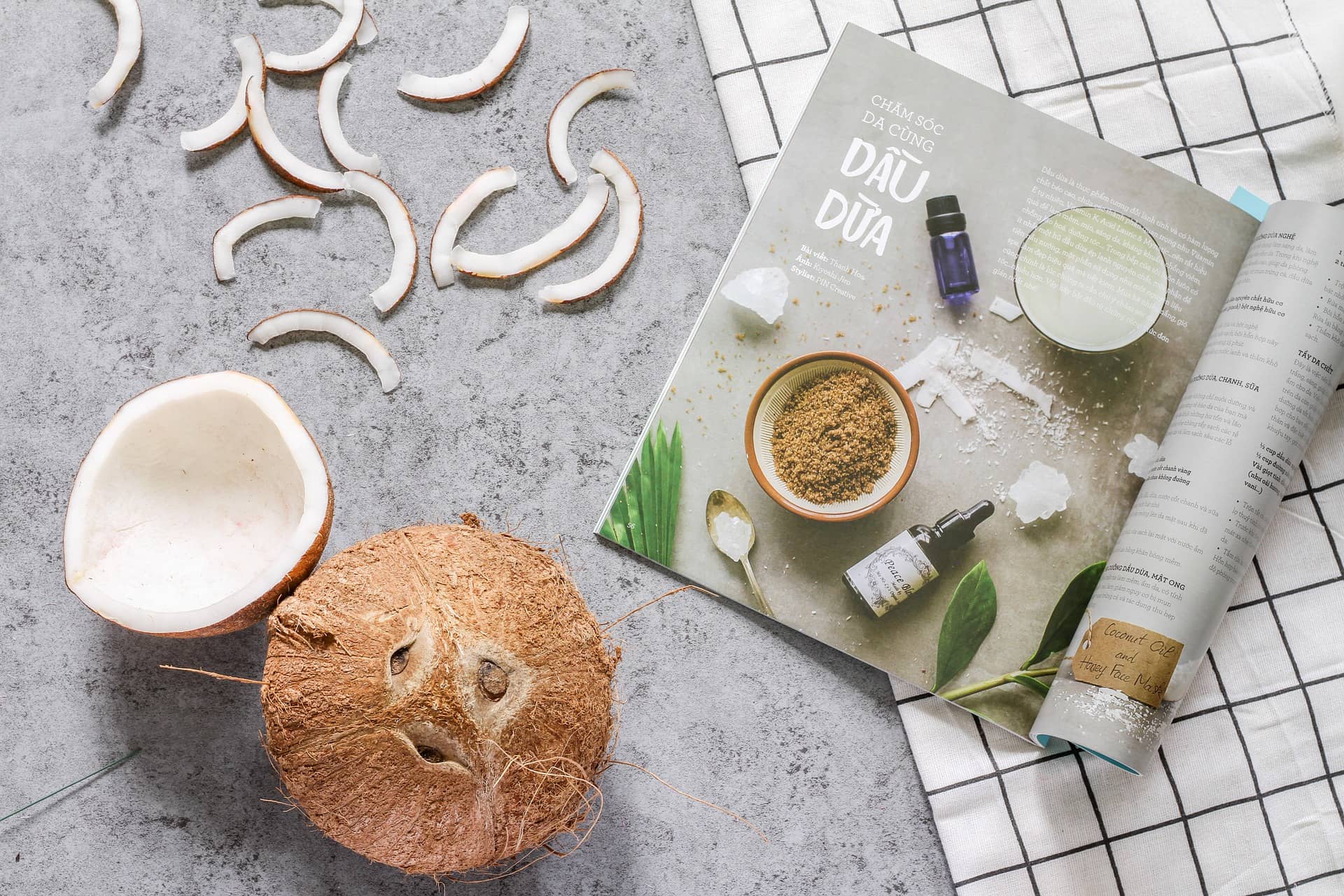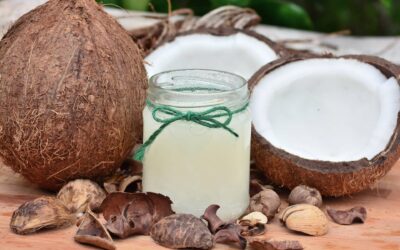As MCT oil is being projected as a superfood, many health enthusiasts are now looking forward to taking advantage of the outstanding health benefits of the oil. The oil is now widely adopted in Keto and low carbs diets, not leaving out the acceptance of the oil in the fitness industry.
As more and more people become aware of the health benefits of MCT oil, demand has only known an upward movement and to meet this increase in demand more MCT oil needs to be produced in other to meet the market demand.
In this post, you will be able to understand what MCT oils are, the health benefits of the oil, and things to consider when importing the oil or buying the oil for your private use.
What Is MCT
MCT means medium-chain triglycerides, and triglyceride is just a technical term for “fat.” These fats when consumed in the body are either used up for energy or stored as body fat.
On the other hand, there are other fats known as LCTs (long-chain triglycerides) which are known to metabolize differently when consumed.
Another way to refer to these acids can be seen as MCFA (medium-chain fatty acids) and LCFA (long-chain fatty acids). The difference between LCTs and MCTs can be seen from the number of carbon atoms. LCTs are known to have more carbon atoms than MCTs. What is more important to note is MCTs are more beneficial than LCTs.
Types of MCTs
There exist four types of MCTs namely C6 (caproic or hexanoic acid), C8 (caprylic or octanoic acid) C10 (Capric or decanoic acid), and C12 (lauric or dodecanoic acid).
From the above acids, only C8 and C10 are widely used in MCT oils. Both C6 and C12 are usually removed from MCT oils due to their characteristics. The C6 is known for their bad taste and smell while the C12 which makes the majority in coconut oil are the slowest to metabolize in the body.
MCT Oil
MCT oil is a supplement that is made up of medium-chain triglycerides (MCTs). It is known to be a highly concentrated source of MCFAs which are usually obtained from coconut or palm kernel.
The MCT oil can either be a 98% (MCTC898) – 100% C8 MCT oil or a blend of C8 and C10 which is referred to in the market as MCT 6040 (C8 60% and C10 40%).
Even though MCT oil is obtained from coconut oil, both oils can differ. The main difference between MCT oil and Coconut oil is that MCT oil can be 100% C8 or C10 which are known to be easily processed by the body whereas coconut oil contains C8, C10, and C12 which is absent in MCT oil. In simple words, MCT oil is just the extraction of the best acids the body needs.
Health Benefits of MCT oils
Coconut oil is already being considered as a superfood by many due to its health benefits, and if that’s the case, then we may need a better term to describe MCT oils. This is because MCT oil is the better or updated version of coconut oil.
Just the best MCTs are used in the production of MCT oil. Even though the C12 acid is known to have anti-microbial properties, some producers do not use it because it is slow to absorb or digest in the body.
When MCT oils are consumed they metabolize rapidly and make their way to the liver where it is used for energy. MCT oils are not stored as fat as is the case with LCT’s
Below are some of the benefits of MCT oil;
- MCT oil can be an energy booster as MCTs can increase energy levels and burn fat (1 2).
- The oil can help with obesity (3 4).
- Consuming MCT oil can help burn calories (5 6).
- MCT oil can help to improve our gut health.
- MCTs can help to regulate blood sugar levels and reduce the risk of diabetes (7).
- MCT oil can help improve brain health (8).
- What to consider when importing MCT oil
With the current popularity in MCT oils, and for the fact that majority of the countries are unable to produce or manufacture MCT Oil, many small businesses are only open to import.
Importing can be a good “sport” for experienced import and exporters but might not be the case for someone looking to import for the first time. Many may think, it is as simple as placing an order online and wait for the delivery.
If you are looking to import MCT Oil, you must put the following into considerations;
1-Understand the laws that govern the importation of MCT oil in your Market.
Customs and Border Protection departments in any country overseas the importation of products into a given country to ensure that such products are permitted to be imported in the country. Every country has its list of prohibited products that may not be allowed to enter the country.
MCT oils, which are considered vegetable oils, may not come with any crucial importing rules but certain countries may require certain parameters before the oil can be allowed to enter the country.
As nations strive to protect their citizens from consuming harmful products and to prevent the country from being used as a dumping ground for all sorts of products, they might come up with strict rules that permit only the importation of healthy organic products. Further documentation may be required to prove the quality of the oil to make sure it meets the countries required standards.
It is of prime importance to consult a licensed customs broker, qualified to provide you with all the information you might need to import vegetable oils and precisely MCT oils. For US importers, you can get such information from the FDA.
2-Tariffs and Taxes
Import tariffs and taxes can hinder importation from certain countries. Certain countries encourage favorable terms of trade with other countries through trade agreements. These agreements can permit importers to import products from countries with trade agreements almost free from tariffs and the case might not be true with other countries. A good example can be the US-China trade war leaving both countries with high tariffs imposed on certain industries (8a).
When looking to import your MCT oil, look for countries with favorable terms of trade with your country. As importers bring in goods from countries with very low tariffs and taxes, more profit can be guaranteed compared to importing from a country with high tariffs.
3-Pick the right supplier
With the recent popularity of MCT oils, overnight suppliers are popping up from every angle with claims that might trigger a buying decision. What background information do you have about a supplier you are looking to import from? Is the company a long-standing company in the production of MCT oils? or just a brand new company with little or no credibility?
Fake suppliers with low-quality products will jump on the ride to make some quick profits and that will be at the cost of a low-quality product from an unreliable company.
It is important to check with the company you are willing to work with to make sure they are well established and efficient in the production of MCT oils.
4- Go for 100% organic and sustainably sourced MCT oil.
A good quality MCT oil ensures it is organic, free from pesticides and other unwanted chemicals. With the mad rush for companies to meet the global demand, many fake companies will mix the oil with other substances to get a high quantity of the oil which might not be good for your health. A 100% organic MCT oil is free from chemical additives and is fully plant-based derived.
Also, it is very important to obtain your MCT oil from a “green earth” sustainable source. MCT oil is widely obtained from coconut or palm kernel, and the cultivation of palm kernel, in particular, contributes largely to deforestation. This explains why we only work with MCT oil obtained from coconut oil produced under sustainable green earth production practices.
5-Choose the best quality type of MCT oil
As mentioned earlier, MCT oil can either be C8 (Caprylic acid) or C10 (Capric acid) or a blend of both which is usually 60% of C8 and 40% of C10. These two forms of MCT are the best health-wise as they can be easily absorbed and digest into the system.
Caproic acid (C6) is not easily absorbed in the system and can be hard on the digestive system. This MCT is characterized by a bad smell and taste. Also, the same goes for C12 (lauric acid) which most experts believe functions more like an LCT and can’t be easily processed in the system.
Most importantly, the quality of the oil can be determined by how the oil was processed. What production method was used? Cold-pressed?
6-Understand the market opportunities and trend analysis
As a new importer, it is important to pay attention to the opportunities a product can have in the market. Ask questions about the local demand and supply, is the market scalable? what market trends do you see? How stable is the market?
MCT oil has been pulling the market and there are serious opportunities to impact lives with the outstanding health benefits of the oil. We see trends in the fitness and keto markets. What does the market hold for you?
7-Labelling and Packing
Labeling and packing can be very crucial in terms of what certain customs may require. Making sure your products are well labeled before being shipped out is of prime importance. It is important to state what language should be used on the labeling because many suppliers will always go for English. For bulk packaging, here are some points to note;
- – Name of the Product: MCT OIL
- – Batch code
- – Indicate if the product is food grade or industrial
- – Declare any allergic substances present if any
- – The name and address of the exporter
- – Shelf life of best-before date
- – Net Weight
- – Recommended storage conditions
- – Product Origin
For bulk packing, the oil can be filled in drums, for example, 190 liters drum or in high-density polyethylene (HDPE) of about 20 liters for example. These are not compulsory packing requirements. If you have specific requirements, you can propose them to your supplier.
To ensure the quality preservation;
- – The drum must be food grade.
- – The drum must be well cleaned and dried before filled with the oil.
- – Not loading rancid MCT oil.
- – Make sure the drums are fully filled to avoid ventilation and light which will help prevent rancidity.
- – The drums should not be subjected to heat or sunlight to prevent quality alteration.
- – Avoid solidification, by ensuring appropriate temperature during the loading process, travel, and pumping (9).
If the oil is packed for retail purposes;
- – Name of the product: MCT OIL
- – Indicate a list of ingredients, including allergens
- – Nutritional information
- – The quantity / Categories of ingredients
- – Net quantity
- – Best-before date
- – Recommended storage or special storage conditions
- – Business name and address
- – Product origin / Processed location
- – Instructions on how to use the product
- – If the oil is organic, validate the claim with a code of the certifying body, certification number, and logo.
For retail packaging, glass bottles or high-density polyethylene bottles are recommended. Ranging from as low as 100 ml to about 2 liters
Packing on the other hand must be properly done to secure the products right to their final destination. Shipping between countries takes longer transit time and by sea, the containers can go through rough waters in high seas when shipping by sea. The same goes when shipping by air or land.
8-Shelf Life
When importing products from overseas it is very important to consider the shelf life of the product. The shelf life of a product must be higher than the product life circle that is from when the product is purchased and final consumption. You will have to understand how long it will take for the products to be purchased and also on average how long does the final consumer take to consume the product.
When importing MCT oil, make sure the oil is not below a 24 months shelf life. With this time period, you can have time to present the product in your target market and you can expect the consumer to use the product for a long time before expiration.




